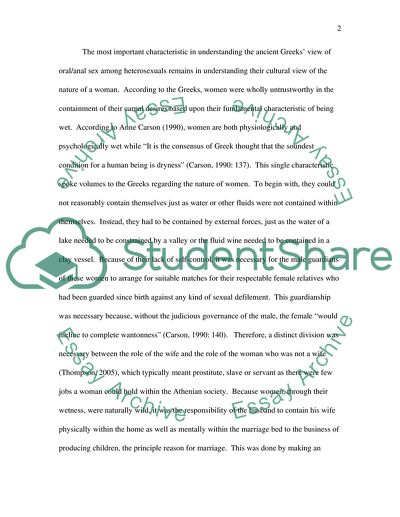Cite this document
(“Human sexuality Essay Example | Topics and Well Written Essays - 1250 words”, n.d.)
Human sexuality Essay Example | Topics and Well Written Essays - 1250 words. Retrieved from https://studentshare.org/history/1537825-human-sexuality
Human sexuality Essay Example | Topics and Well Written Essays - 1250 words. Retrieved from https://studentshare.org/history/1537825-human-sexuality
(Human Sexuality Essay Example | Topics and Well Written Essays - 1250 Words)
Human Sexuality Essay Example | Topics and Well Written Essays - 1250 Words. https://studentshare.org/history/1537825-human-sexuality.
Human Sexuality Essay Example | Topics and Well Written Essays - 1250 Words. https://studentshare.org/history/1537825-human-sexuality.
“Human Sexuality Essay Example | Topics and Well Written Essays - 1250 Words”, n.d. https://studentshare.org/history/1537825-human-sexuality.


